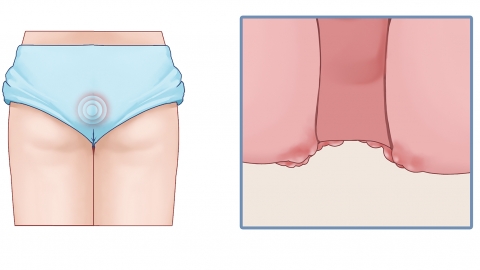How to treat hemorrhoids without surgery
Generally, hemorrhoids may be caused by factors such as pregnancy, prolonged sitting, constipation, anal sphincter spasm, or perianal abscess. Depending on the specific situation, general treatments or medications may be used to manage or alleviate symptoms. It is recommended to seek timely medical attention, identify the underlying cause, and undergo appropriate treatment under a doctor's guidance. Detailed explanations are as follows:

1. Pregnancy: During pregnancy, the enlarging uterus may compress the veins within the pelvic cavity, increasing venous pressure in the anal region and potentially leading to internal hemorrhoids. Symptoms such as leg edema and frequent urination may also occur. It is recommended to increase dietary fiber intake and maintain regular bowel movements.
2. Prolonged Sitting: Remaining seated for extended periods may impair venous return in the rectal area, causing excessive venous engorgement, congestion, and dilation, which may gradually lead to hemorrhoid formation. It is advisable to avoid prolonged sitting as much as possible. If long periods of sitting are unavoidable, using cushions or maintaining proper sitting posture, combined with occasional standing and movement, can help promote blood circulation.
3. Constipation: Improper diet and lack of physical activity may lead to excessive straining during bowel movements, increasing pressure around the anus and resulting in hemorrhoids, often accompanied by symptoms such as difficult defecation and hard stools. Patients may take medications such as Bifidobacterium live powder, Xingpi Yang'er granules, or Simotang oral solution as directed by a physician.
4. Anal Sphincter Spasm: Persistent contraction of the muscles around the anus increases local pressure, leading to hemorrhoid formation. Symptoms may include anal tightness and pain. Patients may use medications such as Nimodipine tablets, Fasudil Hydrochloride injection, or Papaverine Hydrochloride tablets under medical guidance.
5. Perianal Abscess: Hemorrhoids may develop due to factors such as heredity or infection, which cause dilation of the perirectal venous plexus and impaired venous return, eventually leading to hemorrhoid formation. Symptoms may include redness, swelling, and pain around the anus. Patients may receive treatment with medications such as Etimicin Sulfate and Sodium Chloride injection, Metronidazole capsules, or Amoxicillin capsules as directed by a physician.
During treatment, patients should maintain a positive and optimistic mindset and cooperate with the doctor's recommendations and treatment plan to promote recovery from hemorrhoids.





